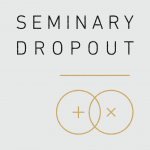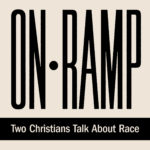
Our sponsor: Compassion International
Check out the new(ish) podcast OnRamp
David P. Leong (PhD, Fuller Theological Seminary) is associate professor of missiology at Seattle Pacific University and Seminary, where he also serves as the director of the Global and Urban Ministry minor. He previously served in churches in urban Seattle through ministries focused on community groups and neighborhood involvement. As a scholar and practitioner, Leong examines the theological meaning of the city in an increasingly globalized and urbanized world. At the intersection of intercultural and missiological discourse, he sees the city as a rich context for theological reflection about topics ranging from hip hop and the built environment to multiculturalism and missional ecclesiology. He is the author of Street Signs: Toward a Missional Theology of Urban Cultural Engagement, and he lives in Seattle’s Rainier Valley with his wife and two sons.
We long for diverse, thriving neighborhoods and churches, yet racial injustices persist. Why? Because geographic structures and systems create barriers to reconciliation and prevent the flourishing of our communities.
Race and Place reveals the profound ways in which these geographic forces and structures sustain the divisions among us. Urban missiologist David Leong, who resides in one of the most diverse neighborhoods in the country, unpacks the systemic challenges that are rarely addressed in the conversation about racial justice.
The evening news may deliver story after story that causes us to despair. But Leong envisions a future of belonging and hope in our streets, towns, cities, and churches. A discussion about race needs to go hand in hand with a discussion about place. This book is a welcome addition to a conversation that needs to include both. -From the Publisher
If you liked this episode then you might also like…
121: Shawn Duncan, on Truly Helping those in Poverty, Gentrification, and the Role of the Church
137: Chris Marlow, Author of ” Doing Good is Simple: Make a Difference Right Where You Are”



Missio Alliance Comment Policy
The Missio Alliance Writing Collectives exist as a ministry of writing to resource theological practitioners for mission. From our Leading Voices to our regular Writing Team and those invited to publish with us as Community Voices, we are creating a space for thoughtful engagement of critical issues and questions facing the North American Church in God’s mission. This sort of thoughtful engagement is something that we seek to engender not only in our publishing, but in conversations that unfold as a result in the comment section of our articles.
Unfortunately, because of the relational distance introduced by online communication, “thoughtful engagement” and “comment sections” seldom go hand in hand. At the same time, censorship of comments by those who disagree with points made by authors, whose anger or limited perspective taints their words, or who simply feel the need to express their own opinion on a topic without any meaningful engagement with the article or comment in question can mask an important window into the true state of Christian discourse. As such, Missio Alliance sets forth the following suggestions for those who wish to engage in conversation around our writing:
1. Seek to understand the author’s intent.
If you disagree with something the an author said, consider framing your response as, “I hear you as saying _________. Am I understanding you correctly? If so, here’s why I disagree. _____________.
2. Seek to make your own voice heard.
We deeply desire and value the voice and perspective of our readers. However you may react to an article we publish or a fellow commenter, we encourage you to set forth that reaction is the most constructive way possible. Use your voice and perspective to move conversation forward rather than shut it down.
3. Share your story.
One of our favorite tenants is that “an enemy is someone whose story we haven’t heard.” Very often disagreements and rants are the result of people talking past rather than to one another. Everyone’s perspective is intimately bound up with their own stories – their contexts and experiences. We encourage you to couch your comments in whatever aspect of your own story might help others understand where you are coming from.
In view of those suggestions for shaping conversation on our site and in an effort to curate a hospitable space of open conversation, Missio Alliance may delete comments and/or ban users who show no regard for constructive engagement, especially those whose comments are easily construed as trolling, threatening, or abusive.